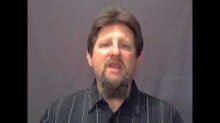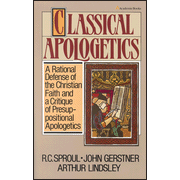Archive
The Wednesday Word: 3 Features of the Gospel Believer
Philippians 3:3, “For we are the circumcision, which worship God in the spirit, and rejoice in Christ Jesus, and have no confidence in the flesh.”
Our text is sometimes badly mis-used and mistreated. Indeed, it has often been used to brutalize the saints as it makes imaginary, legalistic demands on them. The verse has been used to insist that we become worshipers and people who rejoice.
Good luck with that one!
Our verse, however, has nothing to do with mandates. It’s a description of the believer’s lifestyle. You can turn it into law by demanding that we worship and rejoice … but no amount of legalistic preaching can get that desired result.
Notice how in this marvelous little verse we see three excellent truths.
1. True Believers Worship.
Worship is like breathing, we don’t have to be told to do it. As reborn people it’s what we want to do. When we obey the revealed word of God we are worshiping. When we present our body as a living sacrifice, we are worshiping (Romans 12:1).
It’s interesting to observe the kind of worshippers God is seeking. He is seeking for people who will worship Him in spirit and truth (see John 4:23). Worship, we should remember, is not an attempt to gain heavenly approval. No indeed … that approval has already been secured by the shed blood of Calvary. That’s why the gospel provides the energy for all true worship.
No one can worship who isn’t saved. Think about it, how can an unsaved religious person worship when he has neither the Spirit in him nor the righteousness of Christ on him? Yet, there he goes to his church service, well-dressed and tidy and there he sings of matters he knows not of … and calls it worship.
2. The True Believer Rejoices in Christ Jesus.
The Spirit of God energizes every true believer enabling them to rejoice in Christ Jesus. No one can rejoice properly unless their joy is in Christ the Lord (Philippians 4:4).
To ‘rejoice’ in our verse (Philippians 3:3), means to ‘boast.’ The believer, therefore, is one who boasts in Christ Jesus (1 Corinthians 1:31; 2 Corinthians 10:11; Psalm 34:2; Romans 15:17; Galatians 6:14).
“But brother Miles, why is there so little true zeal for the Lord?”
It’s because there is so little rejoicing.
Why is there so little rejoicing?
It’s because we are not living in the gospel.
We are instructed in scripture to rejoice in the Lord but some believers I’ve met should have “Mourn in the Lord always” imprinted on their Bibles. However, rejoicing is our heaven given privilege. The Judge of all the earth could have justly condemned us but instead laid the foundation of our joy in the blood of His cross. Gospel truths are filled with reasons to rejoice.
“But Brother Miles, do you always rejoice?” No, I don’t, and I confess it as sin as I do my other imperfections. Sometimes when I see the wretchedness of my own heart (outside of Christ) I feel powerless to rejoice. This is where the third part of our verse comes into play.
3. The True Believer Puts no Confidence in the Flesh.
When we see what we are outside of Christ and realize that our flesh is unimprovable, corrupt and utterly worthless it is then we learn to put no confidence in anything that the flesh tells us. What the flesh tells us about us is not who we are. We have a new identity in Christ. And when the flesh causes us to despair, Jesus comes to us by His Spirit on the wings of the gospel and tells us again of His Finished Work. I then am enabled to put no confidence in the flesh and focus instead on the gospel and learn to rejoice in Christ Jesus.
The believer never tires of exploring the Finished Work and discovering how it applies to our lives.
And that’s the Gospel Truth!
Miles Mckee
Family Worship for Dummies
by Tom Ascol
When I was a young father I remember reading J.W. Alexander’s Thoughts on Family Worship and being convicted, excited and bewildered. What he described was both attractive and foreign to me. The idea of worshiping daily in my home with my wife and children made perfect sense and seemed to have ample biblical warrant to make me feel compelled to take up the practice. If Noah (Genesis 8:20), the Patriarchs (Genesis 12:7; 26:25; 35:1-2), Joshua (Joshua 24:15) and Cornelius (Acts 10) could lead their families in worship, surely by the help of the Holy Spirit I could, too.
My firstborn was not yet a year old when I began making my first attempts to lead my family in worship. It was disastrous. Those early efforts left my child frustrated, my wife frightened of what the next thirty years might look like, and me feeling deeply disappointed at the carnality of my family. Not only did my wife and infant child not enjoy my 40 minute expositions, 15 minute prayers, and 3 hymns, they acted like I was imposing on them by trying to lead them to worship God!
Read the entire article here.
Sabbath Rest and Human Embodiment
by Jon English Lee
*This post is the latest in a series looking at the Sabbath. Previous posts include: Sabbath Rest and Faith, Early Puritan Sabbatarians (Part 3), Early Puritan Sabbatarians (Part 2), Early Puritan Sabbatarians, Pre-Puritan Sabbatarians? Martin Bucer’s De Regno Christi, Pre-Puritan Sabbatarians (Part 3), Pre-Puritan Sabbatarians? (Part 2), Pre-Puritan Sabbatarians? Henry Bullinger on the Sabbath (Part 1), Where is the Sabbath in the Early Church (Part 3), Where is the Sabbath in the Early Church? (Part 2), Where is the Sabbath in the Early Church? (Part 1), Ecclesiological Implications of the Sabbath (Part 2), Ecclesiological Implications of the Sabbath (part 1), Sabbath Typology and Eschatological Rest, Paul and the Sabbath, Jesus and the Sabbath, The Sabbath and the Decalogue in the OT, a look at God’s Rest as Prescriptive, an examination of the Sabbath as a Creation Ordinance.
The previous post in this series on sabbath rest contained some of my thoughts regarding the necessity of faith and its relationship to rest. In this post I want to continue to think through some other personal implications of weekly sabbath rest being biblically prescribed. Specifically, I want to begin to answer the question “What does sabbath rest have to do with our human embodiment (or, theologically speaking, our anthropology)?” These are just the beginning ramblings of some ideas I am still working through, so I hope you will comment below with your thoughts.
Sabbath Rest and Physical Embodiment
The sabbath pattern also takes into account the embodied nature of our existence. By that I mean that physical rest is a human necessity because of the physical aspect of our being, and that weekly sabbath observance creates space for the regular and proper maintenance of human physical bodies.[1]
Read the entire article here.
Sabbath Rest and Faith
by Jon English Lee
*This post is the latest in a series looking at the Sabbath. Previous posts include: Early Puritan Sabbatarians (Part 3), Early Puritan Sabbatarians (Part 2), Early Puritan Sabbatarians, Pre-Puritan Sabbatarians? Martin Bucer’s De Regno Christi, Pre-Puritan Sabbatarians (Part 3), Pre-Puritan Sabbatarians? (Part 2), Pre-Puritan Sabbatarians? Henry Bullinger on the Sabbath (Part 1), Where is the Sabbath in the Early Church (Part 3), Where is the Sabbath in the Early Church? (Part 2), Where is the Sabbath in the Early Church? (Part 1), Ecclesiological Implications of the Sabbath (Part 2), Ecclesiological Implications of the Sabbath (part 1), Sabbath Typology and Eschatological Rest, Paul and the Sabbath, Jesus and the Sabbath, The Sabbath and the Decalogue in the OT, a look at God’s Rest as Prescriptive, an examination of the Sabbath as a Creation Ordinance.
Sabbath Rest and Faith
This post seeks to demonstrate that weekly sabbath plays a very important role in the spiritual life of believers. Specifically seeking to answer the question “What is the relationship between sabbath rest and faith?”, this post will have brief descriptions of the lessons that weekly rest teaches believers, including: God is the source of all blessings; God has instituted a system of rest, not anxiety; Labor is good, but God is ultimate; and man is utterly dependent upon God for everything.
Resting Requires Faith
Resting takes faith. For people to truly rest, they must recognize their own inadequacies and inabilities. To take one day a week off from our normal work is to proclaim with our lives that we are ultimately insufficient. Resting demonstrates to the….
Read the entire article here.
Early Puritan Sabbatarians (Part 3)
by Jon English Lee
*This post is the latest in a series looking at the Sabbath. Previous posts include: Early Puritan Sabbatarians (Part 2), Early Puritan Sabbatarians, Pre-Puritan Sabbatarians? Martin Bucer’s De Regno Christi, Pre-Puritan Sabbatarians (Part 3), Pre-Puritan Sabbatarians? (Part 2), Pre-Puritan Sabbatarians? Henry Bullinger on the Sabbath (Part 1), Where is the Sabbath in the Early Church (Part 3), Where is the Sabbath in the Early Church? (Part 2), Where is the Sabbath in the Early Church? (Part 1), Ecclesiological Implications of the Sabbath (Part 2), Ecclesiological Implications of the Sabbath (part 1), Sabbath Typology and Eschatological Rest, Paul and the Sabbath, Jesus and the Sabbath, The Sabbath and the Decalogue in the OT, a look at God’s Rest as Prescriptive, an examination of the Sabbath as a Creation Ordinance.
As has been previously shown, English Puritan Nicholas Bownd grounded his sabbatarianism in the creation account, held the Sabbath to be universally and perpetually binding, included both a moral and a ceremonial component, and was immensely practical in his corporate proscriptions for sanctifying the Sabbath. His sabbatarianism was very similar to both Bullinger and Bucer. It is to these specific similarities that we will now look.
Bownd and Bullinger
Bownd shows much affinity and familiarity with the work of Bullinger. While he does not quote Bullinger’s Decades, he does quote Bullinger six times from the latter’s commentaries on Jeremiah, Romans, and Revelation.[1] Indeed, Bownd explicitly, “endorses Bullinger’s idea that the Sabbath originated at creation, that the Lord’s Day originated at the time of the apostles, that the whole time should be…..
Read the entire article here.
Early Puritan Sabbatarians (Part 2)
by Jon English Lee
*This post is the latest in a series looking at the Sabbath. Previous posts include: Early Puritan Sabbatarians, Pre-Puritan Sabbatarians? Martin Bucer’s De Regno Christi, Pre-Puritan Sabbatarians (Part 3), Pre-Puritan Sabbatarians? (Part 2), Pre-Puritan Sabbatarians? Henry Bullinger on the Sabbath (Part 1), Where is the Sabbath in the Early Church (Part 3), Where is the Sabbath in the Early Church? (Part 2), Where is the Sabbath in the Early Church? (Part 1), Ecclesiological Implications of the Sabbath (Part 2), Ecclesiological Implications of the Sabbath (part 1), Sabbath Typology and Eschatological Rest, Paul and the Sabbath, Jesus and the Sabbath, The Sabbath and the Decalogue in the OT, a look at God’s Rest as Prescriptive, an examination of the Sabbath as a Creation Ordinance.
In this post I will continue to examine the sabbatarian thought of Nicholas Bownd, one of the earliest English Puritans to be published on the subject. Specifically, I will show that Bownd believed the sabbath command to be perpetual and moral in nature.
Sabbath Command is Perpetual
Similar to the universal nature of the Sabbath, Bownd also argued for the perpetual nature of the command. Citing “Master [William] Perkins’s,” commentary on Galations 4:10, Bownd writes that these words “‘Six days shalt thou labor, but the seventh is the Sabbath of the Lord thy God,’ are moral and contain a perpetual truth.” Bownd then describes how the heathens search in vain for the proper means, object, and times of worship. Instead, “herein doth the glory of the church and the people of God consist, that the Lord by his word has given them the truth, and has not left them to their own…
Read the entire article here.
Early Puritan Sabbatarianism
by Jon English Lee
*This post is the latest in a series looking at the Sabbath. Previous posts include: Pre-Puritan Sabbatarians? Martin Bucer’s De Regno Christi, Pre-Puritan Sabbatarians (Part 3), Pre-Puritan Sabbatarians? (Part 2), Pre-Puritan Sabbatarians? Henry Bullinger on the Sabbath (Part 1), Where is the Sabbath in the Early Church (Part 3), Where is the Sabbath in the Early Church? (Part 2), Where is the Sabbath in the Early Church? (Part 1), Ecclesiological Implications of the Sabbath (Part 2), Ecclesiological Implications of the Sabbath (part 1), Sabbath Typology and Eschatological Rest, Paul and the Sabbath, Jesus and the Sabbath, The Sabbath and the Decalogue in the OT, a look at God’s Rest as Prescriptive, an examination of the Sabbath as a Creation Ordinance.
In this post I will examine the Sabbatarian thought of one of the earliest English Puritans to write on the subject: Nicholas Bownd.
Nicholas Bownd
Nicholas Bownd (d. 1613) was an early Puritan pastor and three-time graduate of Cambridge (B.A. in 1572; M.A. in 1575; and D.D. in 1594).[1] He pastored a church in Norton, Suffolk, and later was made the rector of St. Andrews, in Norwich. Bownd was the step-son of the great early Puritan, Richard Greenham. [2] We will examine Bownd’s work The Doctrine of the Sabbath…..
Read the entire article here.
Pre-Puritan Sabbatarians? Martin Bucer’s De Regno Christi
by Jon English Lee
*This post is the latest in a series looking at the Sabbath. Previous posts include:Pre-Puritan Sabbatarians (Part 3), Pre-Puritan Sabbatarians? (Part 2), Pre-Puritan Sabbatarians? Henry Bullinger on the Sabbath (Part 1), Where is the Sabbath in the Early Church (Part 3), Where is the Sabbath in the Early Church? (Part 2), Where is the Sabbath in the Early Church? (Part 1), Ecclesiological Implications of the Sabbath (Part 2), Ecclesiological Implications of the Sabbath (part 1), Sabbath Typology and Eschatological Rest, Paul and the Sabbath, Jesus and the Sabbath, The Sabbath and the Decalogue in the OT, a look at God’s Rest as Prescriptive, an examination of the Sabbath as a Creation Ordinance.
In this post I will continue to look at the evidence for sabbatarian theology in the thought of pre-Puritan theologians. Martin Bucer, like Henry Bullinger, had a strong view of the Christian Sabbath. Specifically, in this post Bucer’s De Regno Christi will be examined.
De Regno Christi
Bucer’s De Regno Christi, or The Kingdom of Christ, is a “detailed charter to guide the King in implementing Bucer’s vision of a republica Christiana in England.”[1] Bucer’s chapter titled “Setting Aside Certain Times For The Worship Of God” makes very clear his connection between the Old….
Read the entire article here.
Pre-Puritan Sabbatarians? (Part 3)- Martin Bucer
by Jon English Lee
*This post is the latest in a series looking at the Sabbath. Previous posts include: Pre-Puritan Sabbatarins? (Part 2), Pre-Puritan Sabbatarians? Henry Bullinger on the Sabbath (Part 1), Where is the Sabbath in the Early Church (Part 3), Where is the Sabbath in the Early Church? (Part 2), Where is the Sabbath in the Early Church? (Part 1), Ecclesiological Implications of the Sabbath (Part 2), Ecclesiological Implications of the Sabbath (part 1), Sabbath Typology and Eschatological Rest, Paul and the Sabbath, Jesus and the Sabbath, The Sabbath and the Decalogue in the OT, a look at God’s Rest as Prescriptive, an examination of the Sabbath as a Creation Ordinance.
Martin Bucer
Martin Bucer (1491–1551) was a Strasbourg-based Reformer whose teachings had major influence on early English Puritan thought. At the request of Thomas Cramner, Bucer arrived in England in April 1549, thereafter to assume the post of Regius Professor of Divinity at Cambridge.[1] From that post Bucer influenced many English Protestants until his death in 1551; indeed, Collinson claims that Bucer’s thoughts on the Sabbath were “seminal.”[2] Indeed, it is to the sabbatarian thought of this internationally influential reformer that we will now turn.
Read the entire article here.
Pre-Puritan Sabbatarians? Henry Bullinger on the Sabbath (Part 2)
by Jon English Lee
*This post is the latest in a series looking at the Sabbath. Previous posts include:Pre-Puritan Sabbatarians? Henry Bullinger on the Sabbath (Part 1), Where is the Sabbath in the Early Church (Part 3), Where is the Sabbath in the Early Church? (Part 2), Where is the Sabbath in the Early Church? (Part 1), Ecclesiological Implications of the Sabbath (Part 2), Ecclesiological Implications of the Sabbath (part 1), Sabbath Typology and Eschatological Rest, Paul and the Sabbath, Jesus and the Sabbath, The Sabbath and the Decalogue in the OT, a look at God’s Rest as Prescriptive, an examination of the Sabbath as a Creation Ordinance.
In the previous post I introduced Henry Bullinger’s sabbath theology in order to demonstrate that the puritans were not novel in their understanding of the doctrine of the sabbath. Below is a further look into Bullinger’s view of the day of rest:
The Sabbath is Universal. Related to the notion of a creation based Sabbath, Bullinger believed that it is good for everyone to observe the Sabbath, not just believers. Commenting on Jesus’ statement that the Sabbath was made for man, Bullinger writes……
Read the entire article here.












Recent Comments